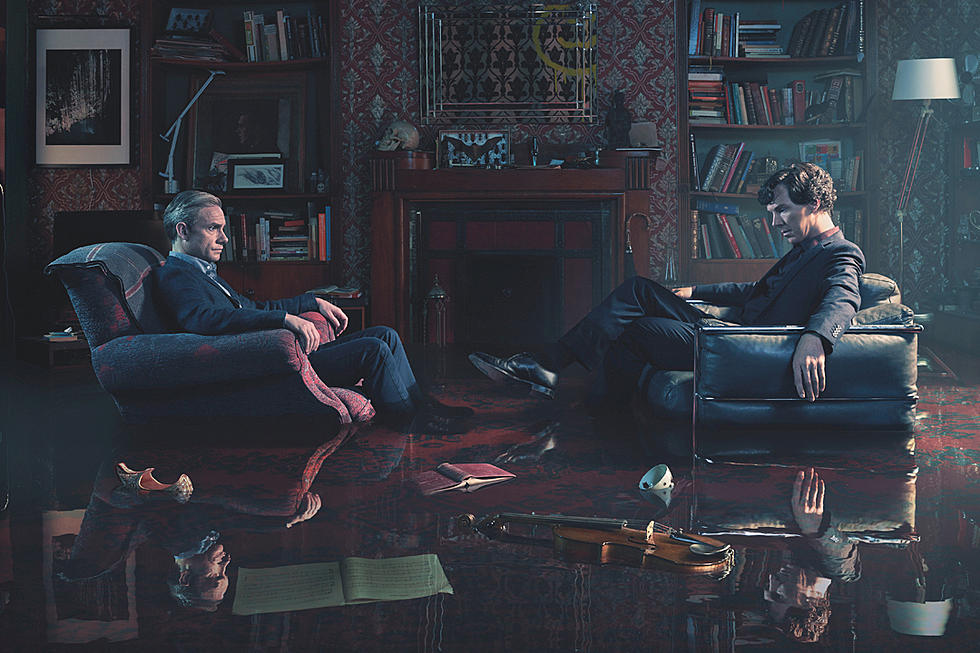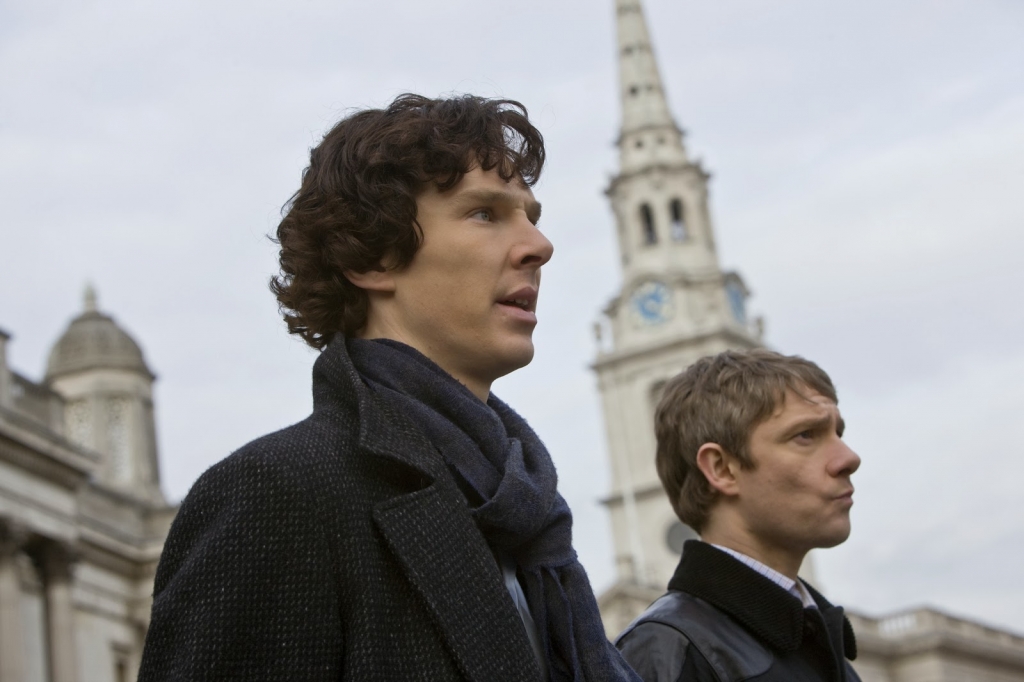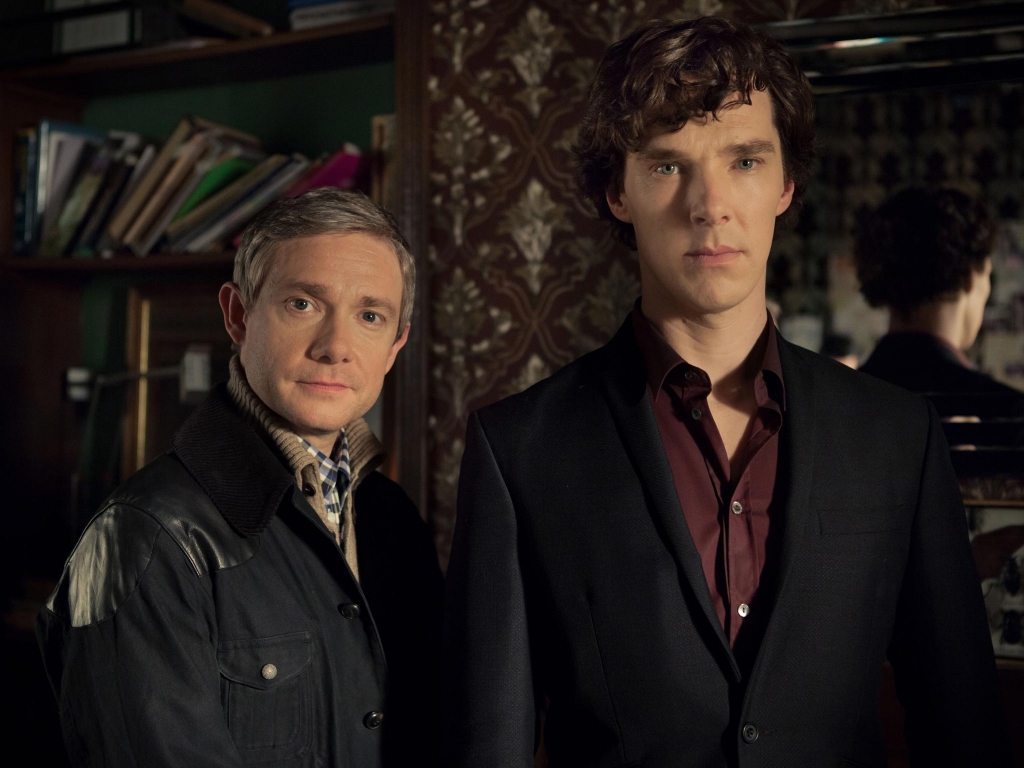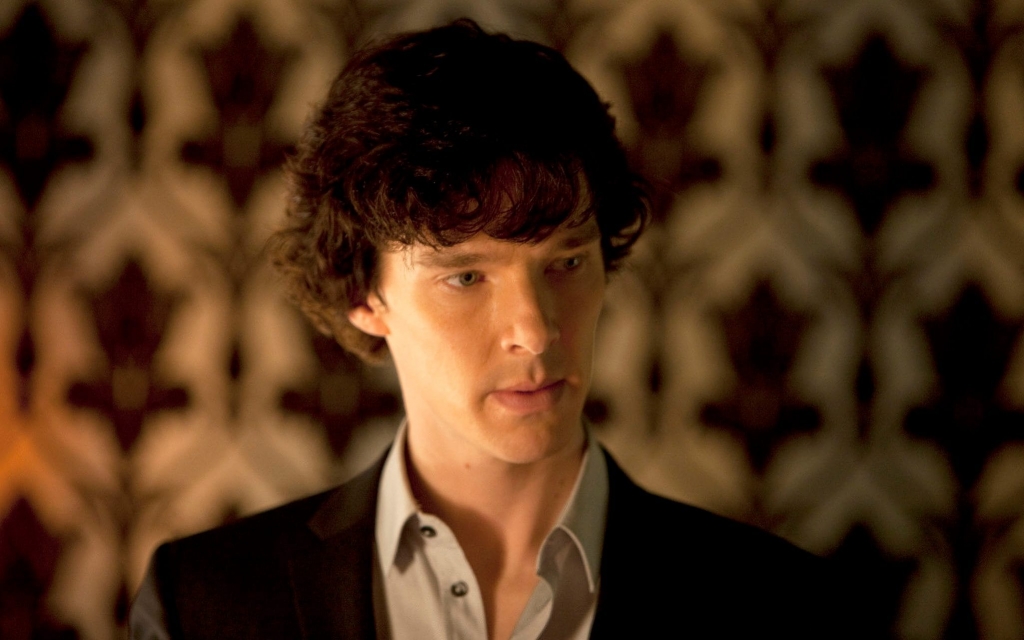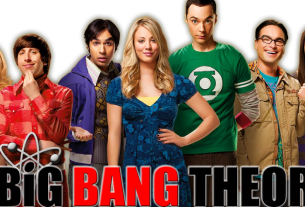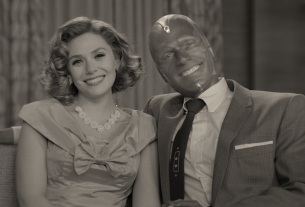Adapting a classic novel and making it contemporary and relevant whilst managing to capture the essence of what made the original so appealing is something many shows and films struggle to achieve nowadays. Steven Moffat’s modern adaptation of Sherlock is one that bucks the trend, nailing the feel and authenticity of the book, helped along by a natural chemistry between the two lead characters, John Watson and Sherlock Holmes. With a 90 minute run time per episode and 3 action packed, exhaustive cases to chew through, Sherlock’s first season is a triumphant reboot for the classic character and one that ends on a cliffhanger worthy of a second season.
The 3 episodes stand alone with their own individual stories whilst weaving a consistent narrative for the characters throughout. John Watson (Martin Freeman) is the focal character for much of the series here as he’s whisked from one elaborate plot to the next with eccentric genius Sherlock Holmes (Benedict Cumberbatch) paving the way with his charismatic charm and smarts. Each episode follows a pretty conventional format, with an opening prologue to set the scene for the mystery ahead before Sherlock and Watson are called to the scene of the crime and begin piecing together what happened and who’s responsible.
The first episode looks at a series of suicides that may be the work of a serial killer, each having ingested a mysterious pill. The second episode involves a shadowy Chinese underworld and strange symbols somehow linked to ancient artefacts while the third and final episode boasts an elaborate series of timed murders, designed to test Sherlock’s mental capabilities as the threat of the illusive Moriarty becomes an ever-present danger. The final scenes of this last episode end with a nail-biting climax and a subsequent cliffhanger lending itself nicely to the second season.
Tonally, Sherlock walks a fine line between lighthearted silliness with clever quips and serious investigative work. While there are moments the series feels like it’s losing focus, Sherlock never loses its grip on the overarching mystery around each episode and because of that, the show is uniquely endearing throughout its feature-length run time.
All of this great work would be nothing if the two lead characters lacked charisma and chemistry and thankfully Sherlock absolutely nails this. Benedict Cumberbatch plays the role of Sherlock so well that it’s difficult to imagine anyone else taking up the mantle after him. Contrasting this is Martin Freeman’s portrayal of Dr. John Watson which grounds Sherlock’s eccentricity well while the two maintain a steady, evolving relationship throughout the three episodes.
Visually, Sherlock’s uniqueness stems from the way it manages to frame and capture the inner workings of a genius deep in thought. Translucent words, numbers and symbols float in sporadic patterns around the room as Sherlock pieces together clues from crime scenes. This, mixed with a combination of extreme close ups, rapidly moving scenes and an exhausting monologue explaining what he’s found really help accentuate Sherlock’s brilliance.
When it comes to modernising a classic character from literature and making them relevant and appealing to a modern mainstream audience, Sherlock does an excellent job. Benedict Cumberbatch and Martin Freeman nail their respective roles perfectly and really help make this series as endearing as it ultimately is across the 3 episodes. While there are some that won’t take to the new tone and style of the show and will be a little aggrieved at the cliffhanger ending, Sherlock is a great series and one that certainly does the original books justice.

